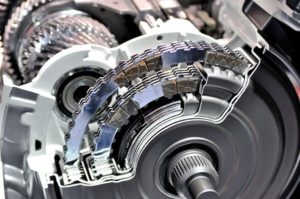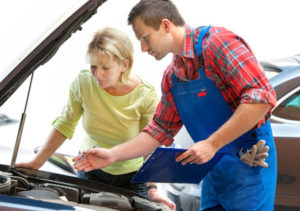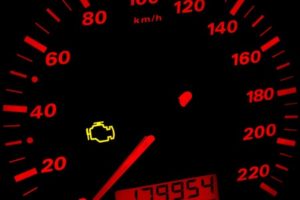Maybe you’ve heard people talking about transmissions before, but are too afraid to ask: what is a car transmission? That’s understandable because you don’t want to seem ignorant, be made fun of, and so on. Instead or continuing to live with this fear, read on to find out not only what transmissions are, but how they work.
This information will enrich your life. First, it will make you more aware of how your car’s transmission works and how you can care for it better. Also, if you have problems with the transmission later, you’ll have a better idea of what’s going on. When you go shopping for a new car, knowing what a transmission is and how it works will help you make a better decision on which vehicle to buy, depending partly on the included transmission.
How do Car Transmissions Work?
 First off, you should know the transmission connects to the engine through the torque converter. It transfers the energy generated to the engine through the transmission’s gears. That energy is then sent to either two or all four wheels, which makes the vehicle move forward. The torque converter takes the place of a clutch, and it works using hydraulic pressure.
First off, you should know the transmission connects to the engine through the torque converter. It transfers the energy generated to the engine through the transmission’s gears. That energy is then sent to either two or all four wheels, which makes the vehicle move forward. The torque converter takes the place of a clutch, and it works using hydraulic pressure.
More specifically, there’s an impeller which is the first part to receive energy from the engine. A clutch is between that and the turbine, which works with the gearbox input shaft. Hydraulic force transfers the torque from one part to the next.
Inside the transmission are planetary gears. The gears are sized differently, like the ones on a bicycle, with the smaller or lower gears making it possible to get going. The larger or higher gears require less effort to keep the car moving forward, conserving fuel. A computer decides when the gears should be changed and in which direction. Driver input with the accelerator pedal and other information might go into this process.
Car Transmission Problems
 Automatic transmissions often run into problems with gear changes, which can actually make transmission repair for qualified shops a little easier to manage. One of the most common is when it makes a clunking, whining or humming sound at different times. This can be caused by a variety of transmission issues which a technician can then diagnose and repair.
Automatic transmissions often run into problems with gear changes, which can actually make transmission repair for qualified shops a little easier to manage. One of the most common is when it makes a clunking, whining or humming sound at different times. This can be caused by a variety of transmission issues which a technician can then diagnose and repair.
Hesitation is another common automatic transmission problem. When you shift from park to drive or reverse, there’s a delay before the car’s ready to move. Usually, this means there’s a problem with the torque converter or clutch assembly. It’s possible an even deeper problem exists, although that’s not as likely.
Your transmission might also grind or shake, which is signaling there’s a problem. This could be accompanied by the feeling of a clunk or knock when the transmission shifts from one gear to the next. Your transmission has been designed to run smoothly, so a problem like this shouldn’t be ignored. Possible explanations for this problem can often include worn gears, although low transmission fluid and even a leak could be the culprit. Again, a qualified technician can usually pinpoint the cause of such a problem quickly, working on a solution and possibly saving the transmission before a full replacement is necessary.
Check Engine Lights and Transmissions
 Believe it or not, another common problem with transmissions is when the check engine light comes on. The light on your dash might look like an engine or it could simply say “check engine.” Despite the name, this light doesn’t necessarily mean there’s a problem with the car’s engine. There are sensors in critical parts of your car which can measure early on if there’s a problem.
Believe it or not, another common problem with transmissions is when the check engine light comes on. The light on your dash might look like an engine or it could simply say “check engine.” Despite the name, this light doesn’t necessarily mean there’s a problem with the car’s engine. There are sensors in critical parts of your car which can measure early on if there’s a problem.
Depending on the make and model of your vehicle, you could have one or more that monitor the transmission’s operation specifically. Once they detect an issue, the dash light is triggered. Certified technicians can read the error code for your car and know immediately why the light is on, then take appropriate action to fix the situation.
Repairing Your Transmission at T3 Atlanta
Of course, there are a number of other things that can go wrong with an automatic transmission. No matter what problems you’re experiencing, know that T3 Atlanta is your transmission repair specialist. Our technicians are trained on the latest techniques to diagnose and fix your transmission, so you can get back to your busy life.










Leave a Reply
You must be logged in to post a comment.